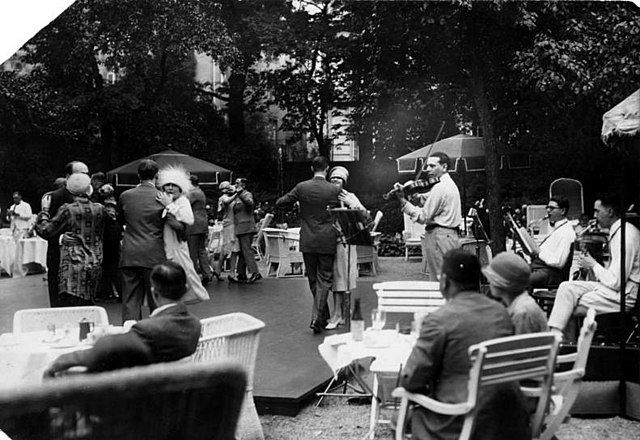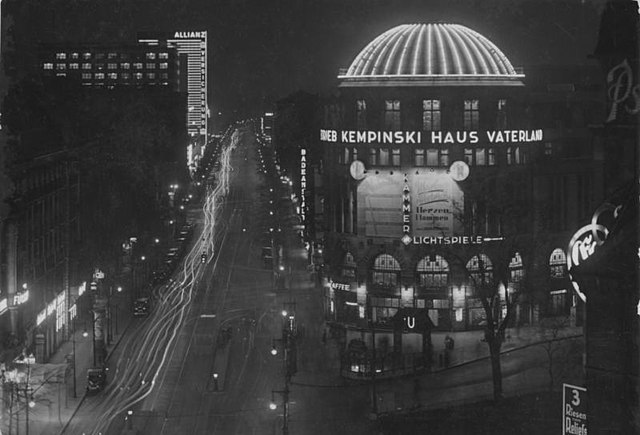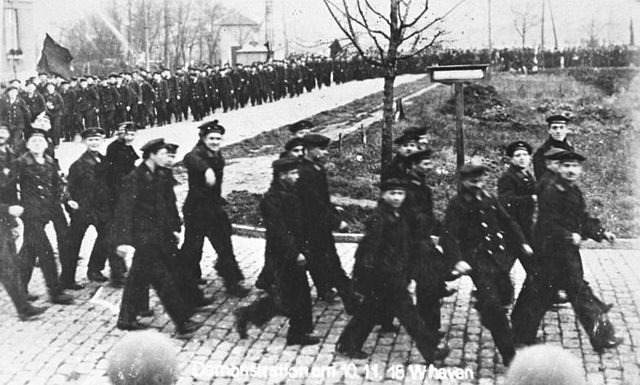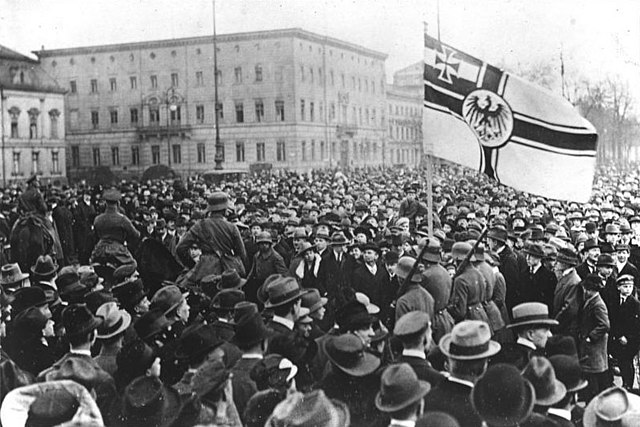The Golden Twenties, also known as the Happy Twenties, was a five-year time period within the decade of the 1920s in Germany. The era began in 1924, after the end of the hyperinflation following World War I, and ended with the Wall Street Crash of 1929.
Tea dance in the garden of the Esplanade hotel in Berlin, 1926
Amusement temples like the Haus Vaterland in Berlin were symbols for the new freedoms of the 1920s
The Weimar Republic, officially known as the German Reich, was a historical period of Germany from 9 November 1918 to 23 March 1933, during which it was a constitutional federal republic for the first time in history; hence it is also referred to, and unofficially proclaimed itself, as the German Republic. The period's informal name is derived from the city of Weimar, which hosted the constituent assembly that established its government. In English, the republic was usually simply called "Germany", with "Weimar Republic" not commonly used until the 1930s.
Sailors during the mutiny in Kiel, November 1918
Philipp Scheidemann addresses a crowd from a window of the Reich Chancellery, 9 November 1918.
Official postcard of the National Assembly
Crowds in Berlin watching the Marinebrigade Ehrhardt march in under the imperial war ensign during the Kapp Putsch






